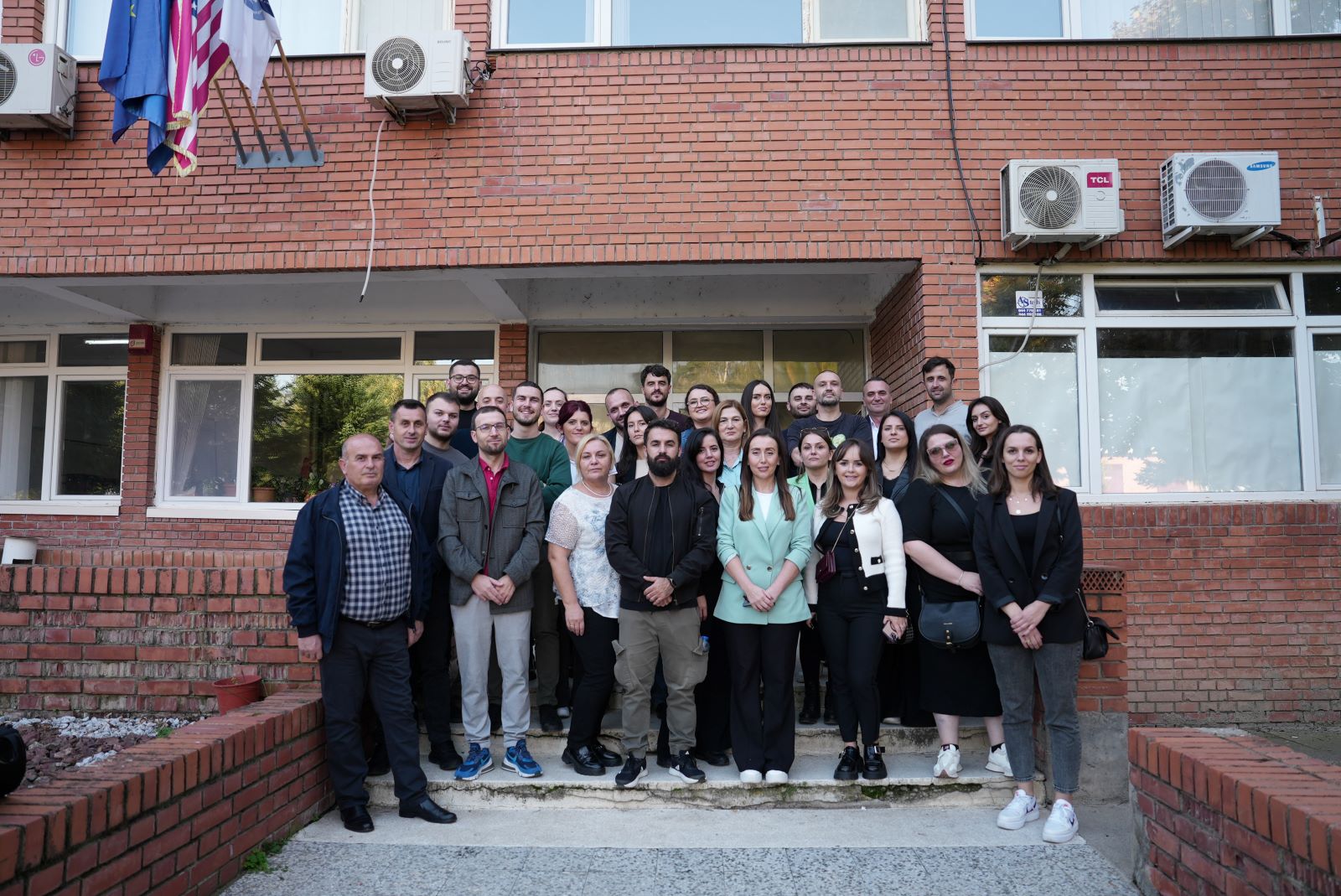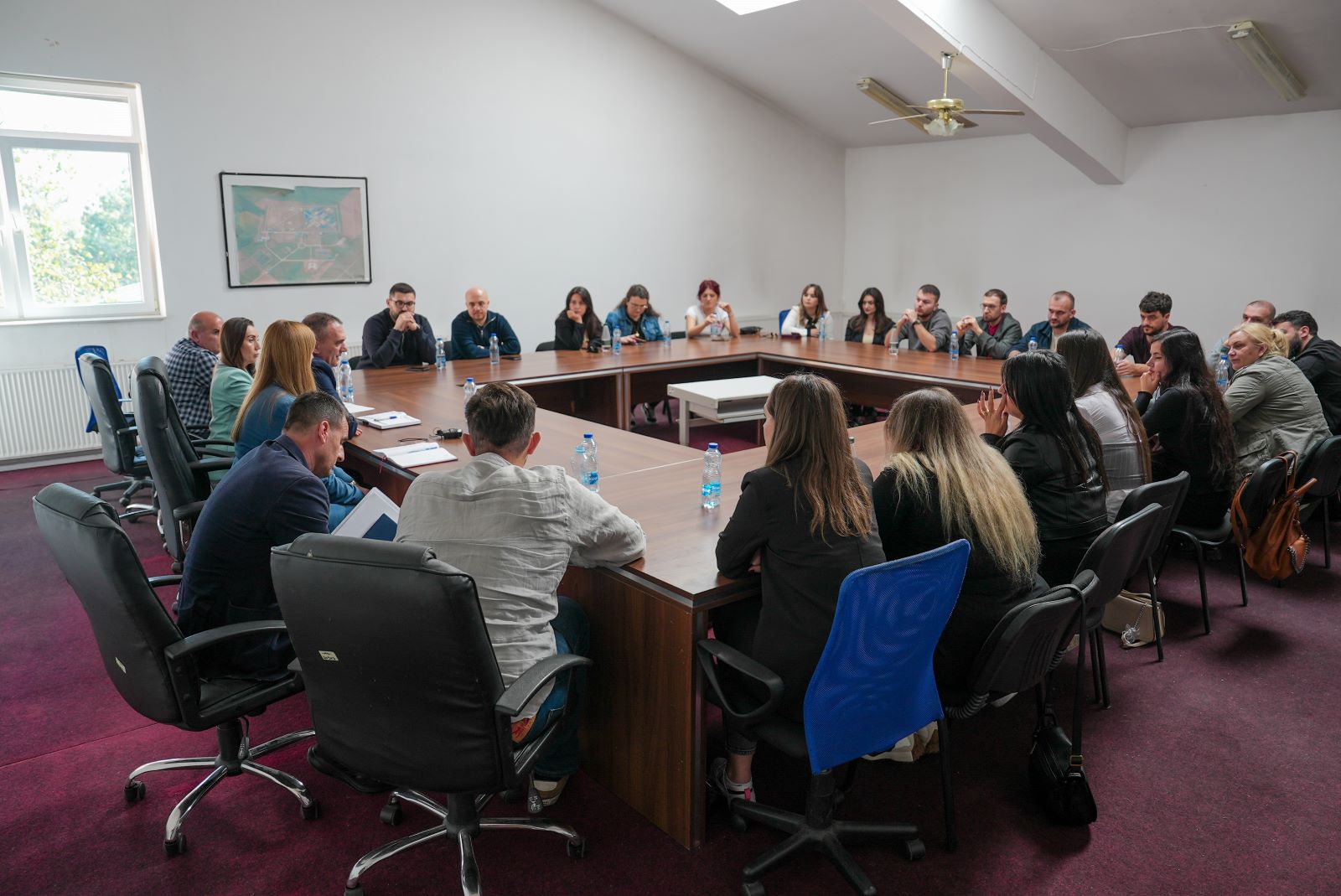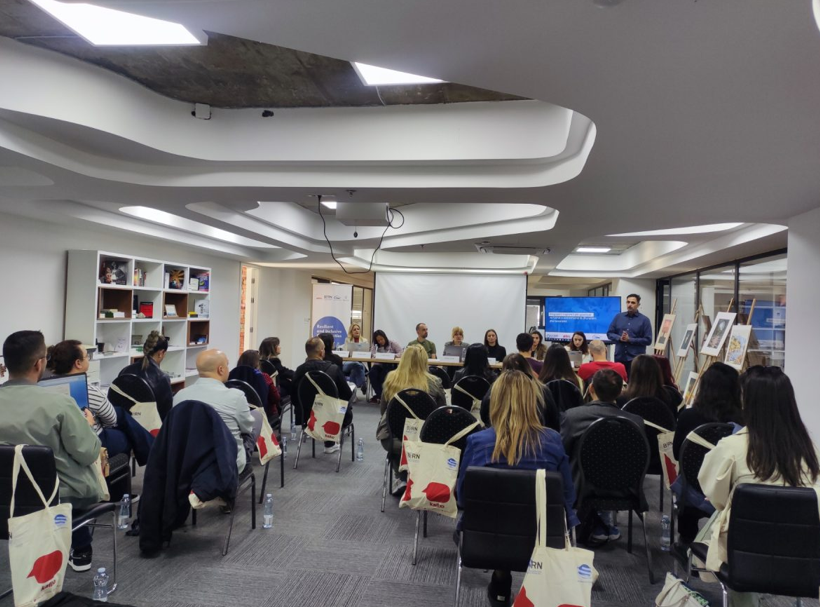As we mark the International Day for the Prevention of Violent Extremism, BIRN Kosovo looks back on what it has done over the past decade to address this phenomenon.
Haunting scenes of Kosovar fighters on the Syria fronts are still fresh in people’s memories over a decade after around 400 young Kosovars made their way to fight alongside ISIS in a move that raised eyebrows to many.
As we mark 12 of February as the United Nations’ International Day for the Prevention of Violent Extremism, we must acknowledge Kosovo’s success in dealing with the phenomenon, which first took Kosovo’s society by surprise back in the early 2010s when groups of young people joined the ranks of terrorist organisations.
The Western Balkans was a war zone in the 1990s. The region was hit by extreme nationalism that led to four wars.
In the 21st century, the entire region had just come out of war, and the state of education was in shambles. Kosovo probably had the worst luck, as for 10 years Kosovars used the home school system after Kosovar Albanians were kicked out of their school premises.
In the immediate aftermath of the war, our immediate challenge was to minimise the influence of ultra-radical ethno-nationalists that led us to war and to stop interethnic violence in the Balkans. Civil society was the first one to manage to build bridges and engage in transitional justice and reconciliation. Civil society organizations engaged in the psychological treatment of victims, social assistance, and economic strengthening. The most important area at the time, however, were projects aimed at lowering ethnic tensions.
It took years to establish multiethnic organisations that would promote a new kind of public discourse that does not encourage ethnic communities retaliating against one another.
In the majority of the cases, these programs have resulted in a more normal society. However, 25 years after the war ended, we are still facing a new wave of far-right and ethnonationalist extremism.
Against this backdrop, when all the societal focus was on interethnic conflict, radicalised recruiters found an open ground to fish for its next victims. Between 1990 and 2010 Kosovo became vulnerable to radical Islam, which managed to spread its ideology and recruit over 400 fighters who joined the war in Syria and Iraq. The beginnings initially seemed harmless, propagated through computer and English courses organised by radical Islamic NGOs organised in Kosovo, Albania and North Macedonia. On these platforms, radical imams created fertile grounds for supporters of Al Qaeda and ISIS.
Intervention

BIRN Kosovo training with Journalists on violent extremism prevention. Photo: BIRN
When society faced such a risk, we did not stay as observers.
Civil society organisations used their long experience in treating nationalist extremism and started doing the jobs that institutions were not doing at the time to create a system that acts as a defense wall against radicalisation.
First, we needed to build our own capacities because very few people knew about religious extremism at the time.
From 2008 until the present, over 500 civil society activists from all communities in Kosovo engaged in creating a role model program that was piloted in Kosovo and then continues in the rest of the region.
This program utilises civil society organization’s energy to prevent violent extremism by giving a key role to the community and civil society organizations in this field.
Thus, civil society organizations engaged in different programs that informed the community of the risk that violent extremism poses and how to detect the signs of extremism.
As a result, hundreds of community members’ meetings were held where community members were trained to identify radicalisation. Hundreds of parents and teachers became engaged in educational programs that aimed to build skills to prevent and identify extremism. In addition, special training programs were held for different officials: social services, correctional services in prisons, and budget officials
Furthermore, we have built strategic communications to minimise the ISIS propaganda that was taking hold of our country to recruit new terrorists. BIRN managed to produce over 500 multi-media pieces using media and social network platforms where the recruiters were going to educate the masses about this phenomenon.
We have also worked on raising the standard and professionalism of other media by briefing them about violent extremism and preventing the stigmatization of returnees from ISIS zones, while different civil society organizations were dedicated to dealing directly with returnees who were arrested upon return.
Those who have returned from ISIS war zones continue to be supported to start new businesses. Civil society organizations offer them psychological support and ensure that children who were born in conflict zones or grew up there would be supported to return to school free of stigmatization.
Results

BIRN Kosovo training session with Journalists on violent extremism prevention. Photo: BIRN
More than 98 percent of jailed former ISIS fighters and their families who were imprisoned have now been released after serving their sentence and now live normal, crime-free lives. They have not reoffended.
Children of former foreign fighters learned Albanian and attended school and women found jobs in a combination of education and economic efforts to make their rehabilitation easier.
Recent data show that after we started preventive programmes, fewer than 10 people went to Syria war zones over two years.
About 100 local and national media in Kosovo were trained to report on violent extremism properly without stigmatizing the returnees, while the same programmes also included more than 500 teachers, social services, community police, and village leaders.
Lessons learned

GCERF partners at the opening event of BIRN Kosovo training. Photo: BIRN
Everything we did was in coordination with institutions through safeguarding the independence of civil society. So, while civil society organizations were involved in such activities, they always kept the watchdog role that criticised the institution for their inaction. These checks and balances made it possible for the process to advance and improve itself.
Apart from coordinating our actions, the second lesson is that the process has to be credible. No radicalised person or returnee would accept a program that he or she thinks is being held because the NGO has a profit incentive. It is very important to create a relationship where it is believable that what you do is because you want to help, not because you want to gain something for it.
Third, no intervention is successful if it is not supported by the community. We can not work with a returnee for our work to be torn to pieces by their teacher who may not treat the returnee well. This, preventing violent extremisms is always a communal affair, not an individual or a single organizational affair.
Challenges
Although our programs sounds successful, we know we face serious challenges ahead.
Lots of people have been imprisoned because of their Syria war journeys but many of those who recruited and radicalised them are still free. We know they are free and looking for their next victim. Thus, we must constantly work to detect the channels where they are radicalised and build defensive walls for society against radicalisation.
Our key challenge ahead is growing far-right sentiments in Kosovo. Extreme nationalists who desire monoethnic states in the Western Balkans are popping up like mushrooms. While the far-right is growing, the number of people held in jail for far-right crimes is also growing. We have over 10 cases of far-right activities in Kosovo that have turned violent and the representatives of these ideas are growing their support, especially in social networks. In the last few years, we have been trying to build a model of dealing with the far right, a model based on violent extremism, and adapt it to this new challenge. We needed to start activities to stop the far-right propaganda on the internet to treat the chain of events that may lead to more violence.
Right now, when radicalised Islamists have no ground to recruit new supporters our focus has been shifted to the prevention of far-right extremism which we know poses a great risk as in our recent history.
Thus, we have a lot to do to protect our community from problems knocking at our door.
This piece has been written for Global Community Engagement and Resilience Fund, GCERF conference in Geneva held on February 12 where Kosovo was presented as a role model in violent extremist prevention.
Recently, BIRN has published a report on the assessment of PCVE programmes in Kosovo. The report, co-authored by Labinot Leposhtica and Kreshnik Gashi, can be found here.
BIRN has produced over 500 P/CVE multimedia materials and is engaged in developing the communication programmes in this field. It systematically monitors the implementation of the Strategy Against Terrorism.
Follow other BIRN works related to extremism:
Documentary on Islamic religious extremism in Kosovo (link)
Documentary on right-wing extremism in Kosovo (link)





